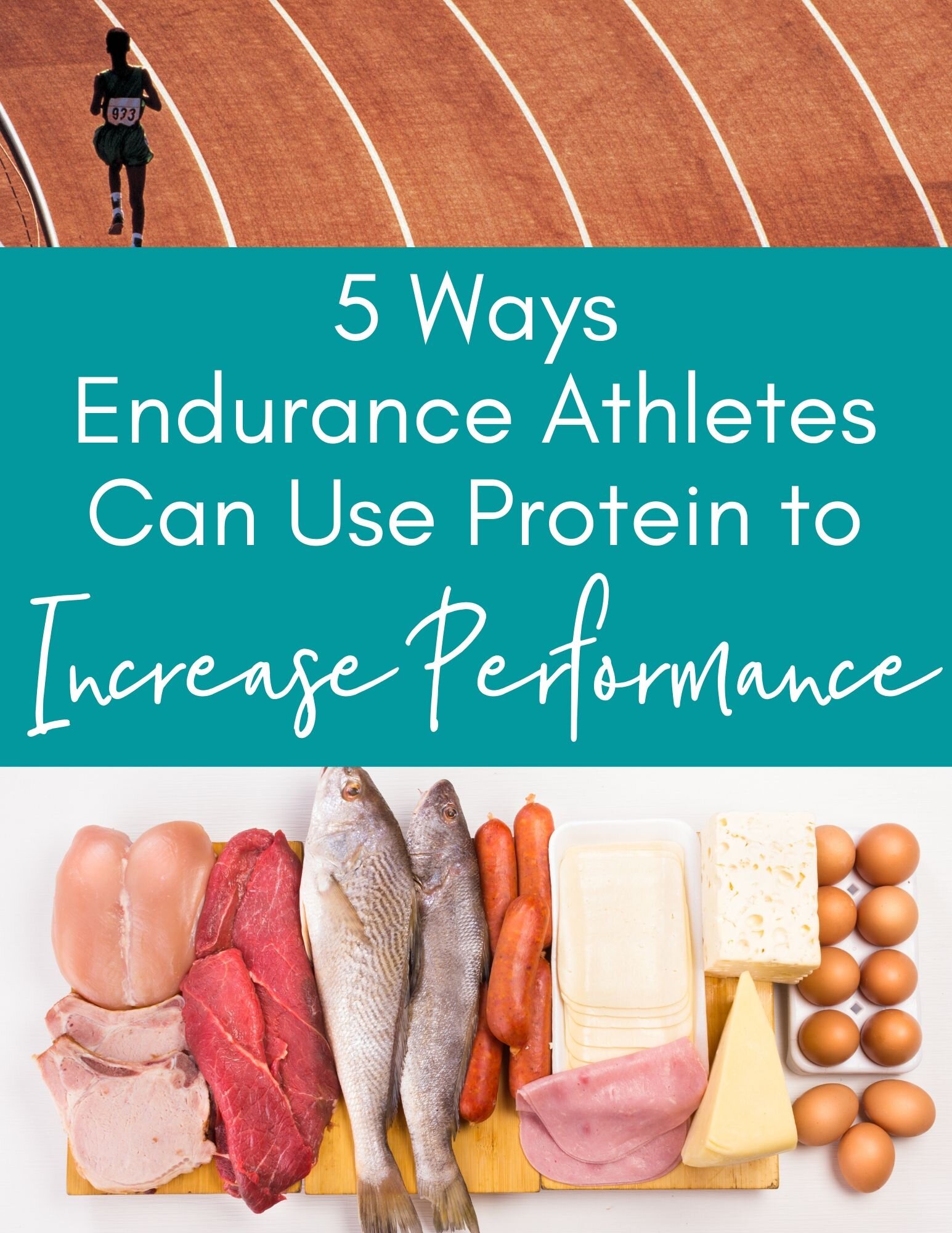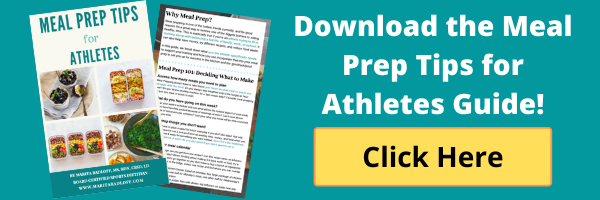5 Ways Endurance Athletes Can Use Protein to Increase Performance
Have you been trying to PR or can’t figure out why you’re not seeing any performance gains?
Maybe you find yourself hungry all day long, especially after training, and find yourself opening up the fridge again and again to quell that hunger?
If this sounds familiar, it might be time to look at how much protein you’re eating. Endurance athletes have specialized protein needs above the general population, and if you’re not getting enough, you may find that those goals stay out of reach.
Adding eggs at breakfast can help shave time off your next marathon or triathlon
Even though only about 2-4% of energy during endurance activities comes from protein, protein has a profound effect on muscle protein synthesis (growth) and breakdown. After you finish your workout, muscle proteins are being remodeled in order to replace and repair damaged proteins. This in turn leads to better oxidative capacity, i.e. you can go further and faster with less effort. If protein intake is low, that muscle can’t be replaced and repaired, so you don’t get the full benefits of that training session. This is especially true during intense bouts of training. Protein is also important for other bodily functions, like the formation of hemoglobin, which carries oxygen to exercising muscles. Proteins called Branched Chain Amino Acids (BCAAs) are also critical to repairing muscle damaged during exercise and for building lean muscle mass, especially leucine.
So, what can you do to reap these benefits? Here are five ways to enhance your protein intake so you can reach your goals and finally stop feeling hungry all day long.
Use these five tips to optimize performance and finally hit your goals.
1. Figure out Exactly How Much Protein You Need Per Day
Athletes have elevated nutrition needs above the general population, meaning they need more calories, carbs, fats, and protein. In order to determine how much protein you need, we need to do some math! Convert your weight in lbs to kilograms by dividing it by 2.2. If you’re an endurance athlete, you take your weight in kilograms and multiply it by 1.2 to 1.4 to give you how many grams you need per day. If you’re in the off-season and wanting to put on muscle, it goes up to 1.5-1.8 grams/kg/day. Remember that as an athlete, it’s likely you have more lean muscle mass than sedentary people, so you require more protein (and overall calories) to maintain that muscle.
2. You Don’t Have Track Your Macros or Calories to Get More Protein
Tracking your macros or calories in an app or with a food journal is time consuming and can lead to disordered eating. The point of eating more protein is not to replace other foods on your plate, but to be more aware of how much you’re taking in so you can feel full longer and reap the benefits of getting more protein.
Instead, use these tips:
Use your hand as a guide when consuming meat- your palm is 3 oz, or about 21 grams of protein from red meat, poultry, and fish.
Choose cow’s milk dairy products, like string cheese (8 grams of protein) cow’s milk (8 grams per 8 oz) cottage cheese (25 grams per 1 cup) and Greek yogurt (8-16 grams per ½ cup) or a glass of soy or pea milk (8 g/cup)
Include protein at snacks by eating hardboiled eggs (6 grams per egg); nuts and seeds (6-10 grams per ¼ cup); or peanut butter (7 grams per tbsp)
Add beans or legumes to meals for extra fiber and protein
3. Know What Works For You as an Endurance Athlete
There is conflicting evidence about protein intake during endurance exercise. Some studies suggest that protein taken with carbs during endurance exercise is beneficial to performance, while others find it just helps to relieve soreness and not have a performance benefit during the activity. For instance, during ultraendurance events lasting over 5 hours, athletes were given carbs and protein combined, there was a reduced muscle protein breakdown but did not increase performance or power output.
There are lots of new foods on the market aimed at ultraendurance athletes that contain more protein and fats to keep these athletes fueled for 10+ hours at a time. If this is you, consider adding 0.25 g/kg/hour of protein to your training only and when you’re training at lower intensities (50% or less of your VO2 max) so that your gut gets used to the extra protein and you don’t experience GI issues.
4. Spread Protein Intake Out Throughout the Day
Most people, including athletes, don’t get enough protein throughout the day and eat the majority of their protein at dinner. Our body isn’t able to store protein for later, and we can only utilize about 40g of protein at once. It’s important to spread protein intake out throughout the day, aiming to have 20-35 grams at meals and 5-15 grams at snacks. Some research has even shown that adults need at least 30g of protein at two or more meals to maintain healthy muscles. In fact, one study found that muscle protein synthesis (growth) was 25% higher when protein was evenly distributed across breakfast, lunch, and dinner compared with the more typical meal pattern of eating the majority of your protein at dinner.
So what should you do to optimize muscle growth and repair? Aim to have more protein at breakfast, lunch, and snacks. When you do this, you will also be fuller longer since protein takes 2-3 hours to digest, meaning you won’t be feeling constantly hungry all day long during training cycles.
5. Know Exactly What You’re Going to Eat After a Hard or Long Training Run/Ride/Swim
After you finish a hard effort, like a long bike ride or tempo run, your muscles are actually super sensitive to nutrient intake, so your goal is to have protein within 1-2 hours after your training. When you have protein after these tough sessions, you increase muscle protein balance, promote muscle tissue repair, and enhance adaptations that help to synthesize new proteins. Aim for 10-25 grams of protein along with 35-50 grams of carbohydrates after long and tough sessions to increase muscle repair and growth.
Many athletes struggle with not being hungry after a tough workout, and this is normal! Instead of force feeding yourself, try to get liquid calories in with a fruit smoothie with added protein, protein shake, or 8-12 oz of cow’s milk.
Want to learn more about protein and all things endurance fueling? Join the Nail Your Nutrition: Endurance Fueling Course waitilist here! This course is catered to endurance athletes who are looking to optimize their performance by honing in on their nutrition.
If this information was overwhelming or you don’t know how to implement these changes on your own, let’s chat! I offer free 15-minute consults to see if we would be a good fit for 1:1 services. If you’re ready to FINALLY hit your goals, let’s work together!





